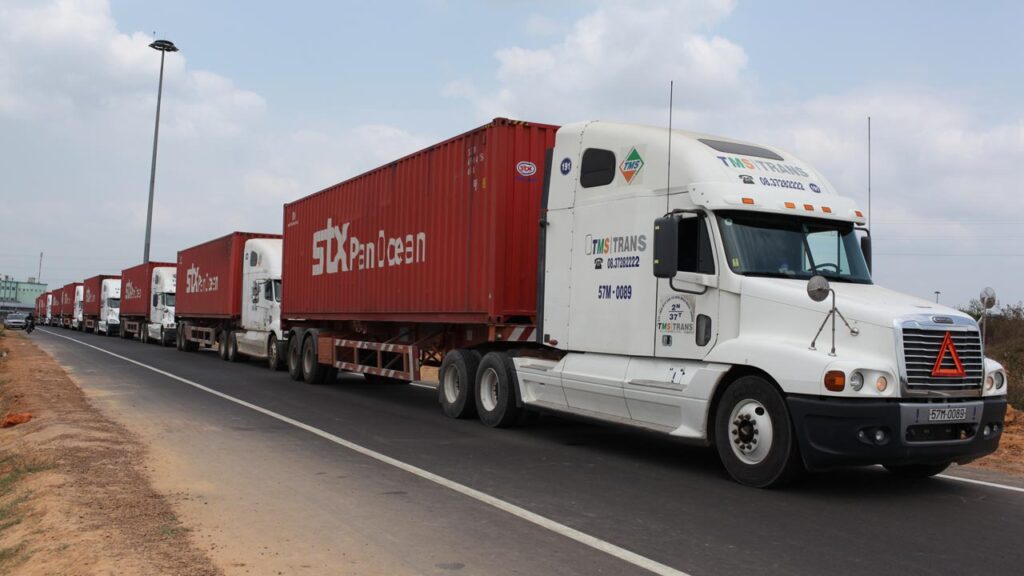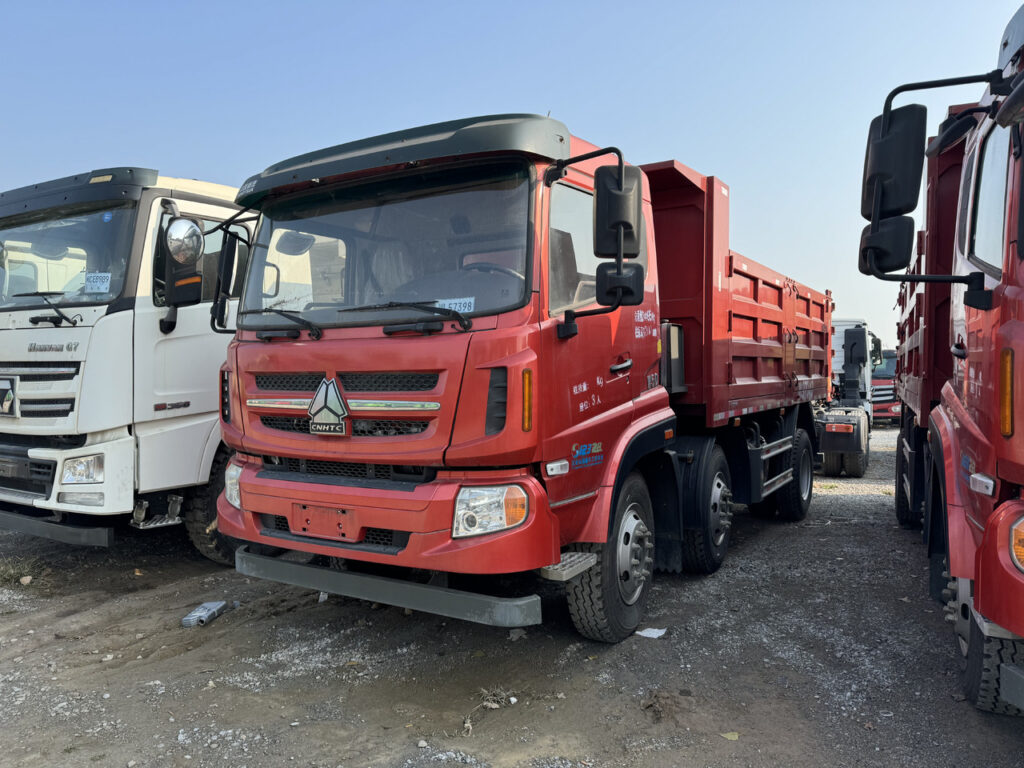
The truck business in Nigeria generates billions of naira every year, yet most people never consider entering this lucrative industry. While everyone is chasing the next tech startup or cryptocurrency investment, a well-run truck business can generate ₦2 to ₦8 million monthly with just three trucks.
Nigeria’s economy depends on moving goods from imported containers at Lagos ports to food products traveling from northern farms to southern markets. Every product in every store arrived on a truck. That fundamental reality creates endless opportunities for entrepreneurs who understand how haulage business in Nigeria actually works.
If you’ve been searching for a business that combines reasonable startup costs with consistent cash flow and actual market demand, you may consider starting a truck business. This guide reveals exactly how to build a profitable trucking operation from scratch.
A Guide to Starting a Lucrative Truck Business in Nigeria
Manufacturing hubs in Lagos, Onitsha, Kano, and Aba constantly need goods transported in Nigeria. Companies struggle to find reliable trucks, drivers show up late, and existing operators can’t meet market needs. This gap between supply and demand creates a business opportunity for you.
Interstate trucking business in Nigeria is a profitable opportunity. For example, moving goods from Lagos to Kano, Port Harcourt to Abuja, or any major route generates may ₦300,000 to ₦800,000 per trip depending on the cargo and truck size. When you complete two trips monthly per truck, you may earn ₦600,000 to ₦1.6 million revenue per truck monthly.
Choosing Your Trucking Niche
Choosing your trucking niche is very important, your niche determines profitability, competition, and capital requirements.
Long-Haul Interstate Transport: Moving goods between states. Higher revenue per trip (₦400,000 -₦1 million), but longer turnaround times and higher fuel costs.
Intrastate / Local Haulage: Moving goods within Lagos or other major cities. This helps lower revenue per trip (₦80,000 – ₦250,000), but ensures faster turnaround and you can complete 3 to 4 trips weekly.
Container Haulage from Ports: Moving containers from Apapa or Tin Can ports. There is consistent demand, payments maybe between ₦150,000 to ₦400,000 per trip. Challenges usually faced are port congestion which may cause delays.
Specialized Cargo: Transporting specific goods like petroleum products, beverages, or perishables. Higher rates due to specialized requirements, but needs specific truck types and permits.
Most beginners should start with interstate or intrastate general haulage before specializing.
How to Buy Truck for Your Truck Business in Nigeria

The price of brand new trucks scare most people away. For a brand new Sino Truck, you might be looking into spending ₦45 to ₦65 million. For Mercedes Benz, it might cost ₦85 – ₦120 million, and MAN Diesel, ₦90 – ₦130 million.
However, you can get efficient foreign used trucks (Tokunbo) or Nigerian used trucks for these brands at:
- Sino Truck/Howo: ₦18 – ₦28 million
- Mercedes Benz: ₦35 – ₦55 million
- MAN Diesel: ₦40 – ₦60 million
Nigerian Used Trucks:
- Sino Truck: ₦12 – ₦22 million
- Mercedes/MAN: ₦25 – ₦45 million
Starting with one solid foreign-used truck around ₦25 to ₦30 million makes sense for most entrepreneurs. It’s affordable enough to finance yet reliable enough to generate consistent income.
Essential Steps to Take When Starting a Trucking Business
- Visit truck dealers in Lagos (Berger area), verify truck conditions, compare prices. Speak with existing operators about their experiences with different brands.
- Secure financing. Apply to banks, leasing companies, or explore investor partnerships. Have a business plan ready showing projected cash flows.
Financing Options to Get Your Trucks in Nigeria
Bank Loans: Some commercial banks offer asset financing for trucks. Expect 20-30% down payment, 18-24% interest rates, and 2-3 year repayment terms.
Leasing Companies: Companies like AXA Mansard Asset Management or WAPIC Insurance offer truck leasing. Lower upfront costs but higher total payments.
Equipment Financing Firms: Specialized lenders like Ascentech or private equity firms finance truck purchases for equity or profit-sharing arrangements.
Personal Savings: This is a perfect option if you can afford it to prevent debt and make all your profits to stay with you.
- Complete purchase and registration. Handle all paperwork, install GPS tracking, paint/brand the truck professionally.
- The next step is to hire a driver, register on freight platforms, begin networking for clients. Start with platform work while building direct client relationships.
Hiring The Right Drivers
Screen thoroughly. Check driving history, previous employer references, and conduct police background checks. One reckless driver can destroy a ₦30 million asset overnight.
Test driving skills practically. Don’t just trust licenses, observe how they handle the truck, especially reversing and navigating tight spaces.
Verify experience with similar trucks. A driver experienced with small trucks needs training before handling 30-ton trucks.
Have a structure for the payment plan. You can pay ₦100,000 – ₦150,000 base salary, then ₦20,000 – ₦40,000 per completed trip. This encourages quick turnarounds while providing income security.
Include fuel efficiency bonuses into your payment structure. If a route typically consumes ₦500,000 diesel but the driver completes it using ₦450,000, share 30-40% of savings. This helps reduce fuel theft and waste.
How to Manage Common Problems
- Install GPS tracking with real-time monitoring. Drivers knowing you’re watching reduces unauthorized stops, route deviations, and fuel theft.
- Require photo documentation at loading and offloading points. This prevents cargo theft claims and provides evidence of timely delivery.
- Implement strict maintenance schedules. Drivers must report issues immediately, with rewards for catching problems early and penalties for neglect.
How to Find Clients and Secure Contracts for Your Truck Business in Nigeria
The following are ways by which you can get clients and contracts for a successful truck business.
Initial Client Acquisition
Register on freight platforms like Kobo360, MVXchange, or TruckR. These digital platforms connect cargo owners with truck operators. Commission fees range from 10-15%, but they provide steady work while you build direct relationships.
Network at Industrial Areas
Visit Apapa, Ijora, Trade Fair, Oshodi, and other cargo-heavy zones. Talk to warehouse managers, clearing agents, and freight forwarders. Leave business cards and rate sheets.
Target Manufacturing Companies Directly
Companies like Dangote, Nestle, Unilever, and Nigerian Breweries constantly need trucks. Getting even one contract provides stable monthly income.
Join Trucking Associations
Organizations like Road Transport Employers Association of Nigeria (RTEAN) or National Union of Road Transport Workers (NURTW) provide networking opportunities and sometimes exclusive contracts.

Long-Term Success Strategies
Deliver on time, every time. In an industry where delays are normal, consistent punctuality makes you stand out dramatically.
Maintain professional communication. Return calls promptly, provide updates proactively, and handle issues professionally. Many cargo owners pay premium rates for peace of mind.
Also, it is important that you invest in cargo insurance. Offering insured transport attracts higher-value cargo and justifies premium pricing.
Build a reputation, then scale. Once you’ve proven reliability with one truck, clients will request additional trucks. That’s when you expand to 3-5 truck fleets, and multiplying your profits.
Common Mistakes To Avoid when Starting a Truck Business in Nigeria
Buying Old and Problematic Trucks: That ₦8 million “bargain” truck spending ₦300,000 monthly on repairs isn’t a bargain. Instead buy quality trucks even if it costs more initially.
Poor Driver Oversight: Drivers will steal fuel, damage trucks through negligence, and misuse vehicles if not monitored. GPS tracking and regular inspections are necessary and non-negotiable in the trucking business in Nigeria.
No Maintenance Schedule: Waiting for breakdowns instead of preventing them costs 3 to 5 times more and creates unreliability that loses clients.
Cash Flow Mismanagement: Using all incoming revenue for personal expenses instead of maintaining working capital creates crises when unexpected repairs arise.
Ignoring Insurance: One serious accident without insurance can bankrupt you. Comprehensive insurance is mandatory, and not optional.
Conclusion
The truck business market in Nigeria isn’t going anywhere. The country’s dependence on road transport guarantees decades of opportunity. While everyone chases trendy business ideas, trucking remains the unglamorous strength of commerce and that’s what makes it so profitable.
Starting requires significant capital and serious commitment. But for entrepreneurs willing to do the work, trucking offers something rare, a proven business model with actual demand, reasonable competition, and clear paths to profitability and scale.
Subscribe to our newsletter to get more articles on business and investment opportunities in Nigeria.












